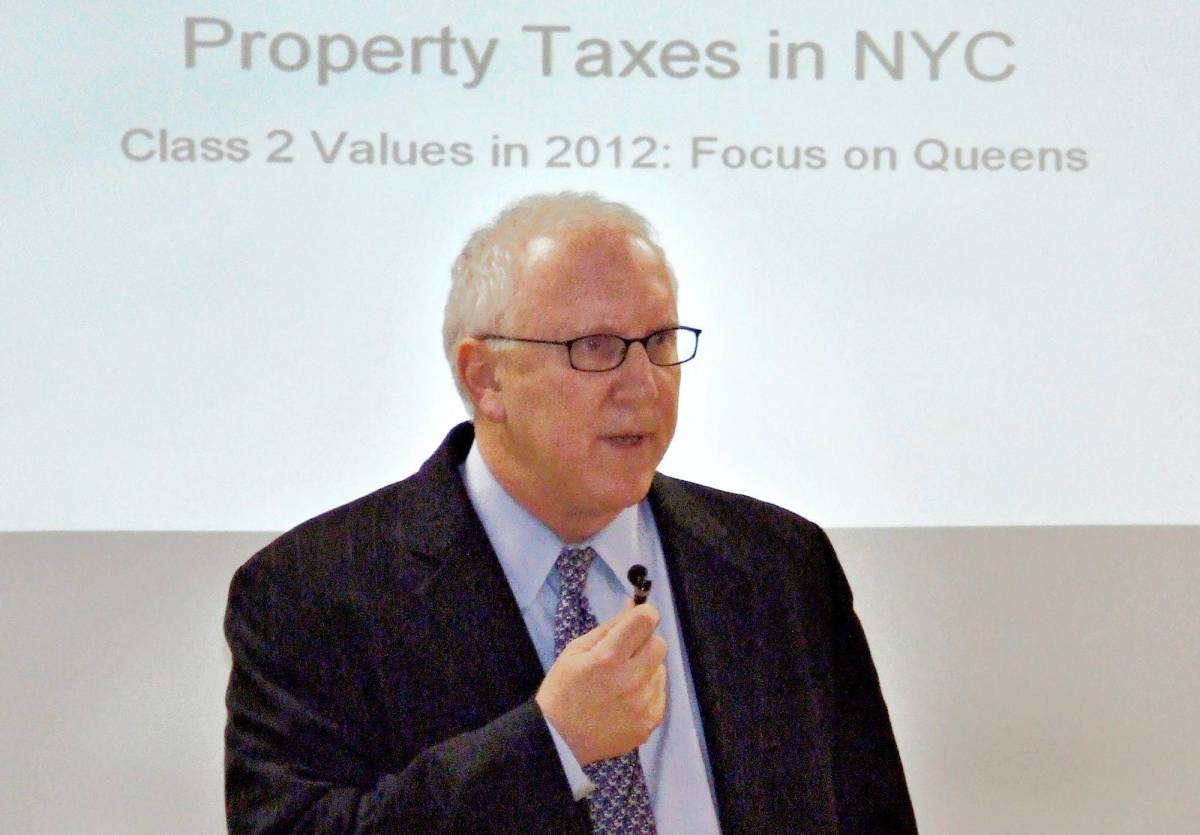By Rich Bockmann
It was standing room only last Thursday night at a town hall meeting in Flushing, where city Department of Finance Commissioner David Frankel met with eastern Queens co-op board presidents to discuss dramatic increases in assessed values.
According to figures provided by state Sen. Toby Stavisky’s (D-Whitestone) office, 39 buildings in the senator’s district registered assessment value increases of 70 percent to 147 percent on the Finance Department’s Tentative Assessment Rolls.
Stavisky, who appeared briefly, said she had the “dubious” honor of living in Cryder Point, the building that topped the list with an increase of 147 percent.
The meeting, moderated by Community Board 7 Chairman Eugene Kelty, was from the beginning impassioned and at times disorderly. Frankel faced an agitated crowd as he attempted to explain a system of valuation that he admitted was far from perfect.
“As a general rule, almost everything in property tax is a creation of state law,” he said.
In accordance with those laws, cooperatives and condominiums are valued as if they were rental properties (based on income and expenses) rather than residential family homes (based on sales). When valuing co-ops, the department looks for similar rental buildings to make comparisons with based on location, age and size.
“The problem is the comparables his department has selected,” said Bob Friedrich, president of the Glen Oaks Village co-op. “Decisions on comparables are made by an auditor whose only point of contact with your community is looking at your address.”
According to Frankel’s presentation, the values of rentals are based on the income and expenses reported by their owners, but in 2008 only 67 percent of them reported those figures and the department was forced to make estimates to fill in the missing information.
When the Finance Department threatened building owners with fines, compliance rose to 90 percent in 2009. With the new information in hand, the agency realized it had significantly undervalued co-op properties in Queens — more so than in any other borough.
To make up for the undervaluation, the city will be phasing in the new assessments over the next five years, although Frankel said that at the urging of elected officials he decided to cap the increases at 50 percent for the first year only.
A 50 percent assessment increase amounts to a 10 percent tax increase. Frankel said this would give his department time to evaluate the new numbers and co-ops to have time to challenge the assessments either in court or with the independent Tax Commission.
Before leaving, Stavisky said she was working to introduce legislation this week that would put co-ops and condos in the same tax class as residential homes, where they would be assessed based on market sales.
City Councilman Peter Koo (R-Flushing), a member of the Council Co-op and Condo Caucus, said he will take up the issue at the next Council meeting April 4.
Reach reporter Rich Bockmann by e-mail at rbockmann@cnglocal.com or by phone at 718-260-4574.



































